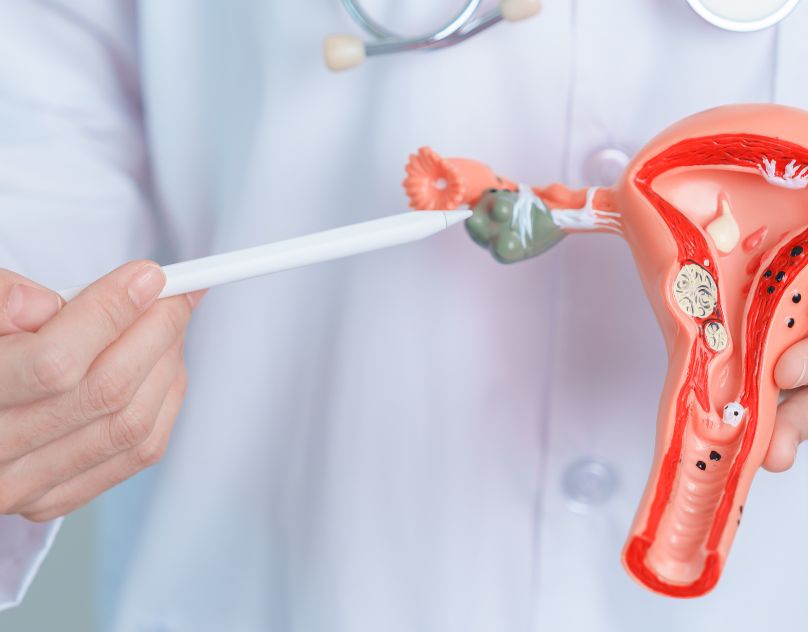When it comes to women's health, understanding and managing uterine fibroids is crucial. These noncancerous growths in the uterus can affect women of all ages, causing various symptoms and impacting overall well-being. In this comprehensive guide, we delve into the intricacies of uterine fibroids, shedding light on their causes, symptoms, and effective management strategies. If you're seeking reliable information and the expertise of a female gynaecologist near you, read on to empower yourself with knowledge about uterine fibroids.
What Are Uterine Fibroids?
Uterine fibroids, also known as leiomyomas or myomas, are noncancerous growths that develop in the uterus. These growths can vary in size, ranging from small, seed-like nodules to large masses that distort the shape of the uterus. While the exact cause of uterine fibroids is unclear, hormonal factors, genetics, and environmental influences are believed to contribute to their development.
Symptoms of Uterine Fibroids
Understanding the symptoms of uterine fibroids is essential for early detection and management. Common signs include:
- Menstrual Changes: Heavy menstrual bleeding, prolonged periods, and irregular menstrual cycles are common indicators of uterine fibroids.
- Pelvic Pain and Pressure: Women with fibroids may experience pelvic pain or pressure, especially during menstruation.
- Frequent Urination: Large fibroids can press against the bladder, leading to increased frequency of urination.
- Backache or Leg Pains: Fibroids can exert pressure on surrounding organs, causing backache or leg pains.
If you're experiencing any of these symptoms, it's crucial to consult with a female gynaecologist near you for a comprehensive evaluation.
Causes and Risk Factors
While the exact cause of uterine fibroids remains elusive, several factors may increase the risk of their development:
- Hormonal Fluctuations: Estrogen and progesterone, hormones that regulate the menstrual cycle, may promote the growth of fibroids.
- Genetics: If a close family member has had fibroids, your risk of developing them may be higher.
- Age and Ethnicity: Women of reproductive age and those of African-American descent are more susceptible to uterine fibroids.
Diagnosis and Consultation
If you suspect you have uterine fibroids, it's essential to consult with a qualified gynaecologist. Search for a female gynaecologist near you who specialises in women's health. A gynaecologist will conduct a thorough examination, which may include imaging tests such as ultrasounds or MRIs, to confirm the presence and size of fibroids.
Managing Uterine Fibroids: Treatment Options
The approach to managing uterine fibroids varies based on the severity of symptoms and the patient's reproductive goals. Treatment options include:
- Medications: Hormonal medications, such as birth control pills or hormonal IUDs, may help regulate menstrual cycles and reduce symptoms.
- Minimally Invasive Procedures: Procedures like uterine artery embolisation or myomectomy can remove or shrink fibroids while preserving fertility.
- Surgery: In severe cases, a hysterectomy – the removal of the uterus – may be recommended, especially for women who have completed their family planning.
Discuss these options with your gynaecologist to determine the most suitable course of action based on your unique situation.
Finding a Female Gynaecologist Near You
If you're seeking personalised care from a female gynaecologist, conducting a local search is the first step. Use online directories, search engines, or ask for recommendations from friends or family. Consider factors such as the doctor's experience, patient reviews, and the convenience of the location when making your choice.
Search "female gynaecologist near me" online to get better results.
Understanding and managing uterine fibroids are integral aspects of women's health. By being aware of the symptoms, causes, and available treatment options, you can take control of your reproductive well-being. If you're experiencing symptoms or have concerns about uterine fibroids, consult with a female gynaecologist near you. With the right information and expert guidance, you can navigate the journey of managing uterine fibroids and prioritise your overall health and quality of life.


No comments yet